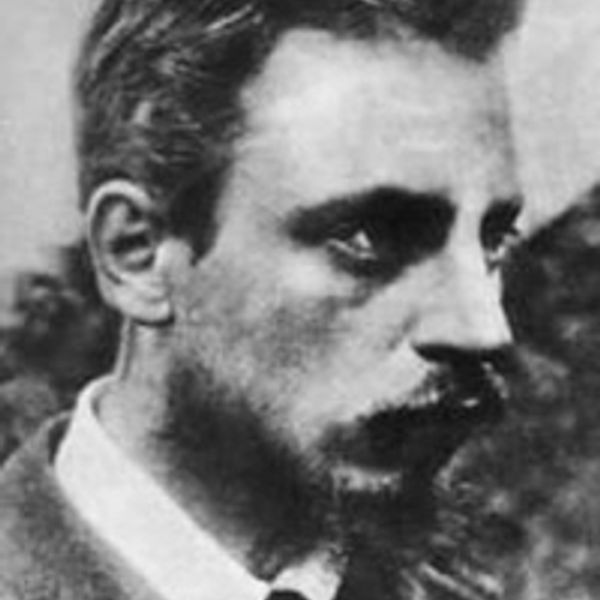Lia Purpura, Parasol Mushroom (detail), featured in AGNI 102
from Windows
IV.
O you window, measure of longing,
refilling so many times
as one life spills over and hurries
toward an other life.
You who divide and who bring together,
as changeable as the sea—
a mirror, suddenly, reflecting and blending
our faces with what we see through you;
a taste of freedom compromised
by the presence of chance,
grasp that serves to balance out
the great excess of the world.
XI.
Vertical plate serving us
the pittance that pursues us,
and the night too sweet,
and the day, often too bitter.
This never-ending meal
seasoned with blue—
we mustn’t let ourselves go
and be fed with our eyes alone.
So many dishes are offered to us
as the plums are ripening;
O my eyes, you’ve eaten roses,
now you’ll drink the moon!

Rainer Maria Rilke
Rainer Maria Rilke (1875–1926), born to a German-speaking family in Prague, was a prolific poet, essayist, critic, and correspondent who rarely did anything but write. Well-known for his restlessness, he often became dissatisfied with his current “home,” sometimes only days after moving there with his custom-made standing desk. Among many other places, he lived in Paris, most notably in 1902–03 when he worked for Auguste Rodin. Inspired by the great sculptor, he began to look at objects with an artist’s eye, and developed a new lyrical style in his so-called Dinggedichte, “thing poems.” During the last years of his life he lived mostly in Muzot, Switzerland, where he wrote 400 poems in French. Rilke died of leukemia in December 1926. His collections include The Book of Images, New Poems, the Duino Elegies, and the Sonnets to Orpheus.

Susanne Petermann
Susanne Petermann is an independent scholar living in southern Oregon. She is in the process of soliciting publishers for her first volume of translations of the French poems of Rainer Maria Rilke. (updated 10/2011)
